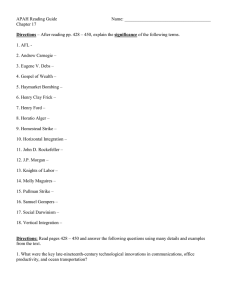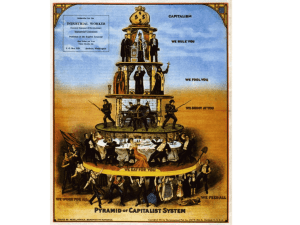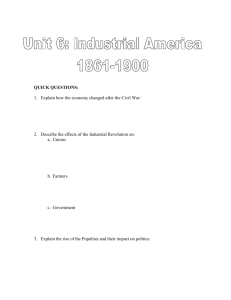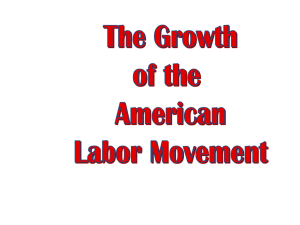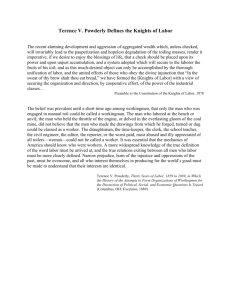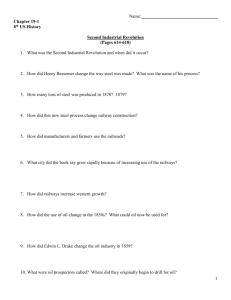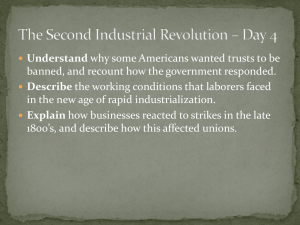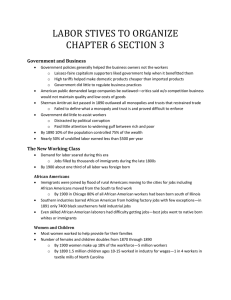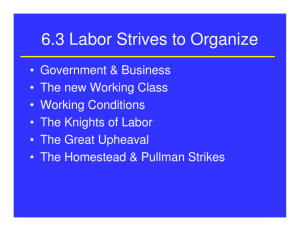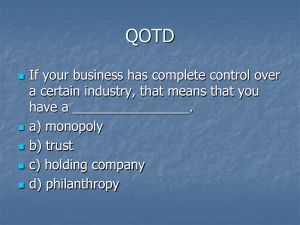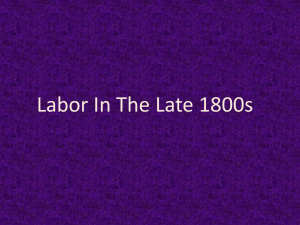Chapter 19, Section 3 Industrial Workers Decline of Working
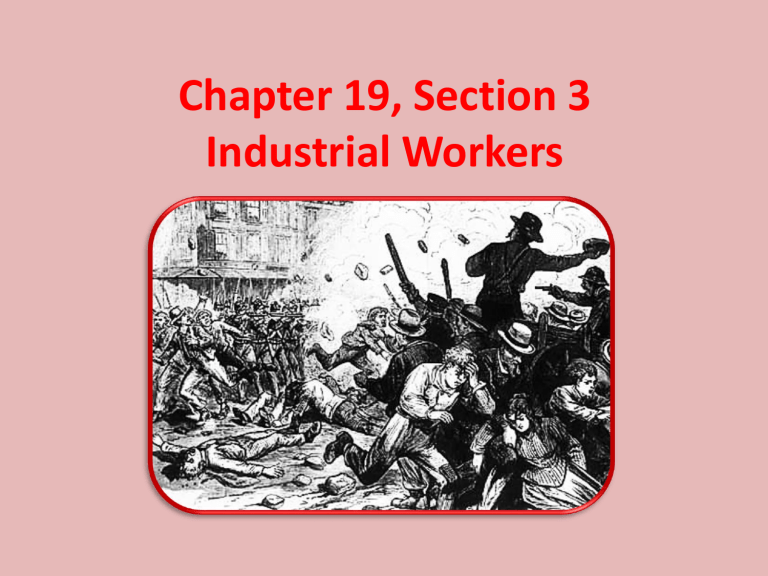
Chapter 19, Section 3
Industrial Workers
Decline of Working
Conditions
• Machines run by unskilled workers were eliminating the jobs of many skilled craftspeople
• Low paid workers could be easily replaced
• Specialization made workers tired, bored and more likely to be injured
SCAB
POWDERLY
Knights of Labor
EMPLOYER
GOSPEL OF THE KNIGHTS OF LABOR:
“We work not selfishly alone, but extend the hand of fellowship to all mankind” -- Terence Powderly
• Who? – members included all factory workers (skilled and unskilled); founded by
Terence Powderly
• What? – first national labor union which pushed for equal work, end to child labor, and govt. regulation of trusts
• When? – 1870s
• Where? – US (cities)
• Why important? – first national attempt to improve working conditions for industrial workers
American
Federation of Labor
• Who? – members included skilled workers only; founded by Samuel
Gompers
• What? – early national labor union that linked smaller crafts unions for different trades together into one national organization
• When? – late 1800s
• Where? – US (cities)
• Why Important? – tried to get skilled workers better working conditions, hours, and working conditions
Collective
Bargaining
• Who? – workers and management
• What? – workers get to negotiate with management as a group instead of individually to hopefully improve their working conditions
• When? – began in late 1800s
• Where? – US
• Why Important? –
Private sector workers have this right.
Should public workers, too?
Mary Harris Jones
• She was an Irish immigrant who became a well-known speaker for workers rights
• She was a dressmaker and after her husband and three children died of yellow fever and her workshop burned down she became an organizer for the
Knights of Labor
• Later she helped organize miners strikes and educate workers
• She gained the nickname
“Mother Jones” when she was still organizing workers well into her 60s
Haymarket Riot
• Workers at the McCormack
Harvester Company in
Chicago went on strike for an 8 hour day
• 2 strikers were killed by police at the strike
• The next day a workers rally was held to support the strike at Haymarket Square
• A bomb exploded killing some police officers
• The police opened fire on the people at the rally
• People connected this kind of labor to the Knights of
Labor, and membership in that union sharply declined
Homestead Strike
• Workers at Andrew
Carnegie’s steel mill at
Homestead, PA protested a company plan to buy new machinery to cut jobs
• The company hired strikebreakers to take the place of striking workers
• The workers seized the plant and shot at the Pinkerton agents hired to take back the plant
• The Governor of PA called in the state militia to restore order
• Fighting took place for months, but the union was defeated
Pullman Strike
• Workers in the company town for George Pullman’s railroad car factory went on strike
• They were protesting the lay off of half of the workers and the lowering of pay for the remaining workers
• Workers stopped traffic on railroad lines
• Federal courts ordered workers to return to their jobs, but they refused
• President Grover Cleveland sent federal troops to
Chicago to stop the strike
